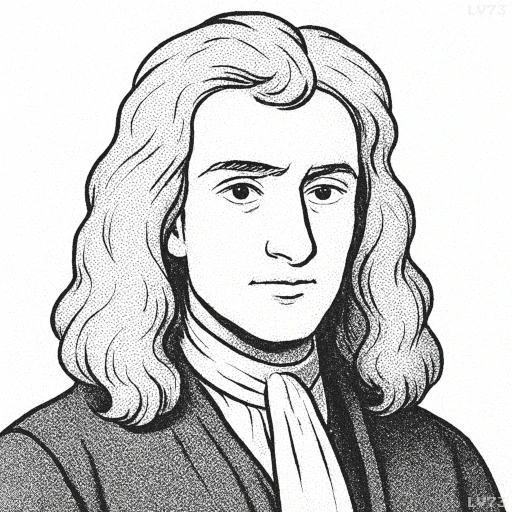“Are not rays of light very small bodies emitted from shining substances?”

- January 4, 1643 – March 31, 1727
- Born in England (UK)
- Natural philosopher, mathematician, physicist, astronomer, theologian
table of contents
Quote
“Are not rays of light very small bodies emitted from shining substances?”
Explanation
In this quote, Isaac Newton is contemplating the nature of light. He poses the question whether rays of light could be considered as small particles or bodies emitted from shining substances. This idea reflects Newton’s corpuscular theory of light, which proposed that light consists of particles (later referred to as photons in modern physics). Newton’s theory suggested that light behaves like a stream of particles, and he believed that these particles, or “rays,” were emitted by luminous bodies, such as the Sun or stars, and traveled through space to illuminate other objects.
This concept was a departure from the wave theory of light, which was supported by Christiaan Huygens and others. The wave theory posited that light behaved like a wave, traveling through a medium (which would later be described as electromagnetic waves). Newton’s emphasis on light as being composed of small bodies was consistent with his broader mechanical worldview, where most natural phenomena, including forces and motions, were explained through the interaction of particles.
In the context of Newton’s time, his corpuscular theory of light provided a practical framework for explaining certain phenomena, such as reflection, refraction, and shadows. However, over the course of the 19th and 20th centuries, the development of wave theory and the dual nature of light (wave-particle duality) led to a more nuanced understanding. Today, light is understood to exhibit both wave-like and particle-like properties, depending on how it is observed, with quantum mechanics offering the most accurate description of its behavior.
Newton’s questioning of light’s nature continues to be significant in the study of optics and modern physics. His theory of light as particles laid the groundwork for later discoveries in quantum physics, where particles such as photons are understood to carry energy in discrete packets. Despite the evolution of light theory, Newton’s exploration of light as “small bodies” reflects his innovative approach to understanding the natural world through mechanical models, influencing the development of both classical and modern theories of optics and electromagnetism.
Would you like to share your impressions or related stories about this quote in the comments section?
